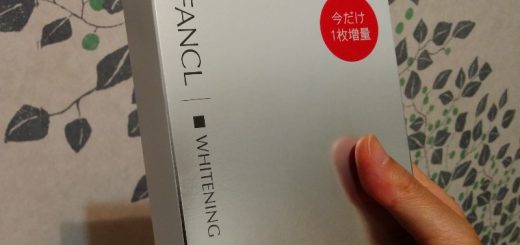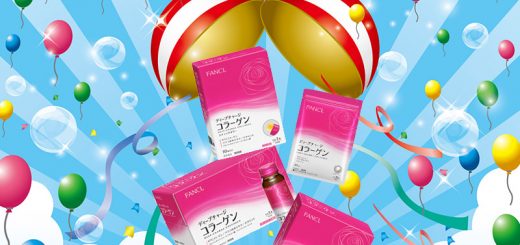Whitening Japanese Products for Skin Pigmentation

In this fourth and final part of comparing medical drugs, quasi drugs and cosmetic products, we are going to talk about skin pigmentation!
Skin Pigmentation: Choose cosmetic products over quasi drugs?
There are numerous skincare products that focus on improving skin spots or discolouration. These include products from medical drugs, quasi drugs and cosmetic products, which is similar to previously discussed products for acne and wrinkles.
From previous articles, we also learnt that quasi drugs are generally more effective than cosmetic products. This is because ingredients in quasi drugs are approved by Japan’s Ministry of Health, Labor and Welfare.
However, the truth is that things are a little different when we talk about skin pigmentation!! You see, some ingredients for whitening products (which are same products we’ll use against skin pigmentation) are strong in effect, and thus do not have the approval of Ministry of Health, Labor and Welfare. Only ingredients with almost no side effects are considered as skincare quasi drugs at the moment. Therefore, quasi drugs for skin pigmentation are weaker than cosmetic products for skin pigmentation.
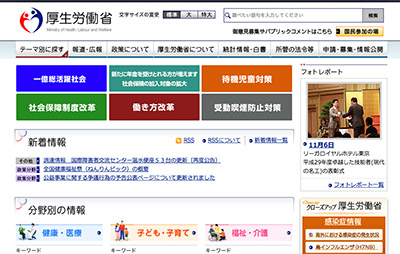
They decide what’s what. (screenshot of Japan’s Ministry of Health, Labour and Welfare website)
Ingredients effective against skin pigmentation
Currently, Japan’s Ministry of Health, Labor and Welfare approves of the following varieties: Vitamin C derivatives, arbutin, kojic acid, ellagic acid, rucinol, linoleic acid S, camomilla EF, and tranexamic acid.
Take for example, Vitamin C derivatives which are essential for whitening care. While it is an approved ingredient, the product is considered a quasi drug if it contains a maximum of 3% concentration of Vitamin C derivatives. However, in cosmetic products we often find 10% or 20% concentration of Vitamin C derivatives (for example ROHTO’s Obagi). So, we can see that:
Quasi Drugs: up to 3% concentration Vitamin C derivatives (weaker in effect, almost no side effects)
Cosmetic products: No limit on Vitamin C derivative concentration (stronger in effect, high stimulation on skin)
In other words, we can expect cosmetic products to be much stronger for skin pigmentation/whitening care!
Hydroquinone, inherent strength for whitening
Western countries know hydroquinone to be a strong whitening ingredient. In fact, there are a number of customers who have been looking for Japanese products formulated with hydroquinone. However, the Ministry of Health, Labor and Welfare has not approved this ingredient as an effective ingredient, thus they are all classified as cosmetic products.
What is Hydroquinone?
Hydroquinone an excellent whitening ingredient, often referred to as a “bleach for skin”. It is very effective on skin pigmentation or on darkened acne scars.
This ingredient is said to be 10 to 100 times more effective in pigmentation control and whitening, when compared to other whitening ingredients such as Vitamin C, arbutin or kojic acid. Hydroquinone has been in Western countries for a while now, but was only deregulated in Japan in 2001 for use in cosmetic products.
Also, Japanese products often contain whitening ingredients derived from traditional wisdom and experience. These ingredients include plant extracts including mulberry extracts, licorice extracts and clara extracts. The Ministry of Health, Labor and Welfare has not approved of the these too.

Aka “Skin Bleaching” outside of Japan. Need to be careful what you mix the ingredient with!
Cosmetic products for skin pigmentation
Whitening ingredient – Vitamin C derivatives
Products containing Vitamin C derivatives are not only good for skin spots and whitening, but also for beautiful skin on the whole!
There are different types of Vitamin C derivatives with different levels of skin penetration. So the one with the best penetration (and thus most effective) is APPS.
Penetration Rate comparison
★★★★ – APPS (Ascorbyl palmitate 3 Na phosphoric acid)
★★★ – Ascorbyl phosphate Na, Ascorbyl phosphate Mg
★★ – Ascorbyl tetrahexyldecanoate
★ – Ascorbic acid glucoside
Therefore, we shall be introducing cosmetic products with the best penetration rate: the ones with APPS (Ascorbyl palmitate 3 Na phosphoric acid)!
Dr.Ci:Labo VC100 Essence Lotion
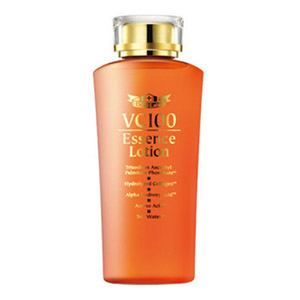
This is the popular all-in-one medical cosmetic toner: Dr.Ci:Labo VC100 Essence Lotion. It contains the high skin penetration APPS. Other than improving skin pigmentation, it also provides a wholesome care to skin dryness, elasticity, dullness and open pores.
ASTALIFT Jelly Aquarysta
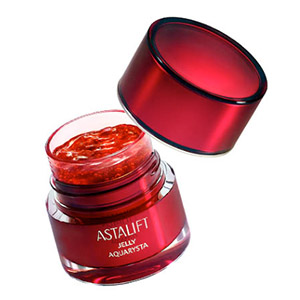
This is ASTALIFT’s preceding essence that is popular for skin elasticity and moisture care. Other than APPS, it also contains collagen, ceramide and astaxanthin.
The serum is applied before using toners. It also creates a skin that absorbs moisture and beauty ingredients effectively.
FANCL BC Intensive Skin Booster
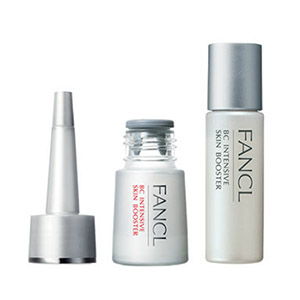
This is another preceding essence that focuses a one-month intensive care for deepened skin pigmentation, lack of skin elasticity and skin dullness. The Vitamin C derivative comes in concentrated powder form, so each use with the essence mixture will deliver the freshest lotion to the skin.
HABA Lift Up Serum
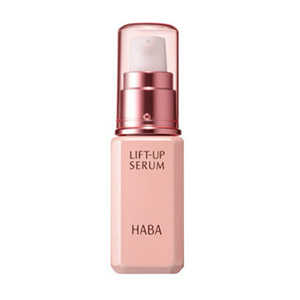
This is HABA’s squalene oil, for which their brand is popular for their preservative-free formula. The Lift Up Serum contains APPS and squalene to provide moisture, skin elasticity and skin dullness care.
Whitening ingredient – Hydroquinone
Japanese hydroquinone cosmetic products mostly contain 1-4% of hydroquinone. Since this ingredient’s whitening strength is highly stimulating on the skin, therefore it is recommended that users do a patch test before formal use.
ROHTO Obagi HQ Brightening Night Serum
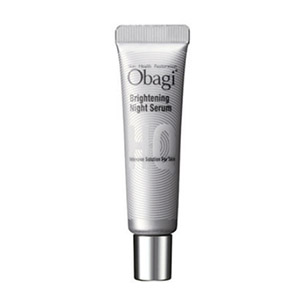
This night cream repairs the damage received from UV rays during the day. Instead of targeting the whole body skin, this allows direct application to concerned pigmented areas.
PLUS Kirei Plus Soap HQ
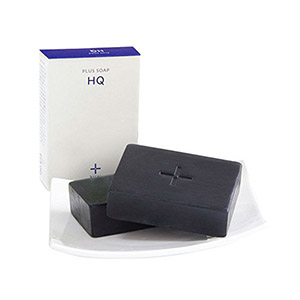
Since there is less than 1% of hydroquinone in Plus Soap HQ, the stimulation is not too harsh on the skin. It is also usable for both face and body. This is popular among users who wants to give hydroquinone a try, and among users who wants to use it on a wider area.
Finally, be sure to patch test!
Skin pigmentation and dullness is one of the major skin concerns for females. In order to keep looking young, how about trying Vitamin C derivatives or hydroquinone? Do remember to patch test before use, to ensure that it is compatible with your skin.
It is not always cosmetic products that are better than quasi drugs, however! Quasi drugs have their importance in dealing with stubborn acne, and are leading the trend for Japanese anti-wrinkle products. Not too sure on the subtle differences between the product types? You can learn when to use medical products, quasi drugs and cosmetic products.



